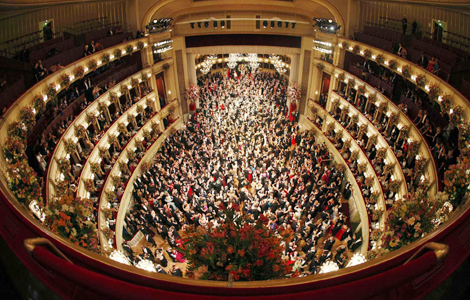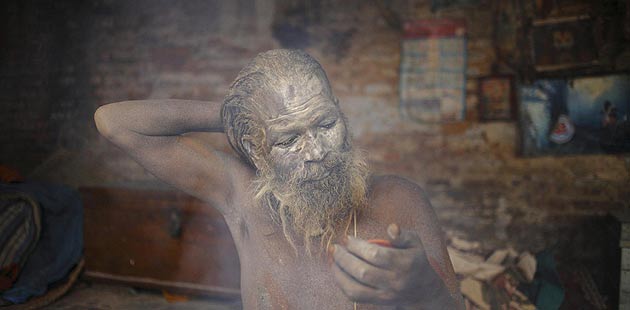Thoughts from a series of 'Chinesecapades'
Updated: 2012-02-22 15:37
By Aaron Jed B. Rabena (chinadaily.com.cn)
|
|||||||||||
I would say my experiences in China are a delightful mix of excitement, amusement and enlightenment, which I have already archived as one of my fondest memories that I will always be happy to speak of. These have been the result of the combination of my various travels, friendships forged, and my immersion with the Chinese culture and society. These experiences I had are not just on an experiential sense or in ‘form,’ but it has in ‘substance’ translated into my many realizations of China. My enthusiasm to learn and trying something new especially from the Chinese warranted me to be accustomed to their way of life because I was of the impression that if the Chinese peoples’ means to success is effective then it should be worth understanding. For if you know ones culture, you will know ones identity.
“Do what the Romans do” is the maxim I held on while in China, but in this case it is “Do what the Chinese do” since I wanted on my own volition to fully immerse myself with the Chinese. I realized that the difference in going to a country as a tourist or having been able to reside for more than a year as a student is that there are things which you will only be able to appreciate and value as you go along with time. In the former, your mind is quick-set in a sense that you tend to pounce on the fun and recreation. There’s nothing wrong with it but to be able to assimilate the culture, you need longer time to realize why they act they why they do, and the rationale behind those acts. All my appreciation and learning about China was amplified by means of watching TV, reading newspapers, and furthered this by my constant communication and interaction with the people because I believe that a theory must be grounded into reality.
In studying in China, I did not just learn my major from within the classroom but also from without. I greatly appreciate the fact that China has a very rich and unique culture that is well-sustained and has been valued by its people for thousands of years. I, for one, have been accustomed to the observance of it, from their cultural events, to the cultural traits and to their cuisines. In addition, I have travelled into some of the cities in China and I can’t help but to be fascinated by the magnificence of its cities such as Beijing, Shanghai, Guangzhou, Chongqing and Wuhan. The historical ancient sites are well-preserved to remind locals and tourists alike of their prestigious heritage. All cities maintained their historical architectural sites while reconciling it with the emergence of modern buildings and architectures creating a wonderful synergy between the old and the new.
Shandong province is the place where the eminent Chinese sage Confucius was born. As I am studying in its capital city Jinan, you cannot help but notice the amicability and kindness of the people which only goes to show that the values Confucius espoused thousands of years ago are still widely practiced. I remember that when I was on the train to go to Shanghai to see the ‘Shanghai Expo 2010,’ I was not able to book my ticket early which made me displaced inside the train and bear the burden of standing for three hours, but then some Chinese discovering that I am a foreigner seeming helpless and unable to speak their language, found a seat for me when other passengers alighted the train. And when I was also on my way to Guangzhou and Chongqing, the Chinese at first does not know that I am a foreigner but upon knowing so, they were very ebullient to make friends and practice their English with me. These were not uncommon for me, for wherever I go in China, I was always treated well by warm-hearted people eager to make friends and at times even forcing me to break bread with them as a sign of goodwill.
In fact, I have been oft-times mistaken as a Chinese when people suddenly ask me for some directions which I just reply by making short statements or admitting that I am not Chinese. I take this as a compliment because they find a sense of affinity with a fellow Asian which I think to a certain degree is an advantage for me in making me feel a little closer towards them. I also realized that after all, I am also an Asian which is perhaps the very reason why I do not find it so hard to adapt to the way of the Chinese. I even had the privilege of celebrating the Chinese New Year in the countryside in Hubei province upon the invitation of my Chinese friend. Chinese New Year is their version of the Western Christmas and New Year combined. It is a time where families eat in a banquet together, exchange gifts and well-wishes with each other. There, I was treated like a part of the family. It was also there I learned that when you cheer your glass with an older person, his glass should be higher than yours as a sign of respect. These signs of respect and obedience are values that are very admirable about the Chinese. Of course, firecrackers would be fired up to drive away evil spirits and welcome the coming of the New Year.
From my interactions with the Chinese, I realized that China also has immense diversity when it comes to their dialects where almost every province has its distinct sub-culture to be proud of. The cuisines vary from province to province and each has its own specialty or delicacy to brag about. Those in the North like noodles and dumplings, while those in the South are fond of rice. Also, the Northerners and Southerners are distinguished by their contrasting accents. In any case, I have already been used to eating all types of Chinese food because they are all delicious anyway. In fact, I have always taken the pleasure of patronizing Chinese street food because it is uniquely delicious, simple and very cheap.
I even joined a certain ‘Hsing-I Quan’ kungfu organization to fully appreciate the Chinese culture and learn martial arts. I was very privileged to have the most famous and talented master in town. In being my master’s first formal foreign student, I was treated like a celebrity through a certain ceremony where even some members of the city media were invited to cover the event. Weeks later, I just realized that I was published in the city newspaper. Months later, this was followed-up by an interview where I appeared in a magazine, and then later on at a certain TV show. All I wanted when I joined was to be treated like any other student, but I do understand the sheer kindness and hospitality my master extended to me, which is certainly something that is of absolute benevolence.
One of the things I like most in China is the system of transportation. The accessibility of the trains as a means for traveling has become very helpful because it can almost link any place enabling you to go to wherever you like. The essence of having accessible and affordable transportation enables not just the fast movement of the goods and services across the country, but most especially that of the people. By allowing the people to travel quickly, not only do you save a lot of time and enhance productivity and efficiency, but you also more importantly uplift their happiness by making it convenient for them to visit their loved ones and help them see and discover the diverse beauty that their country has to offer. This in effect reinforces their sense of national pride because with the aid of modern transportation, their sense of appreciation is heightened, and the people more proud.
Another role of the trains aside from its material value is that it also on an ideational aspect forges national identity. Given the vastness of their land, trains make it appear that the provinces and cities are nearer to each other which actually help weave their ‘national connectedness.’ Aside from this, while the people are inside the trains for long hours of travel or even days, it is natural that they would interact with other passengers, and by these long hours of socialization -- stories and food are shared, new friendships are formed, and national values are naturally exchanged which deeply strengthens ‘social and national cohesion.’
As you travel across China, you will notice that some major and emerging cities look alike, and this is actually the result of the government’s clever centralized urban planning and standardized modes of transportation. This just goes to show that the government’s architectural designs and engineering are uniform across China, which thus creates a manifestation that the level of its organization from top to bottom in mapping the blueprint and layout for its urbanization echoes the Chinese national identity throughout the country. Not only is it pleasant to the eyes, but it also sends a message that by through such level of centralization, uniformity, organization, and systematization -- the national identity of China is dynamic.
I recall that upon my first arrival in China in Beijing, I was taken at a certain mall by some Filipino friends to have dinner. There I was astonished to see that the basement car park of the mall seemed like a ‘car show’ because of the presence of the so many branded and latest models of parked cars. I just came to realize that this was no doubt a reflection of the looming purchasing power of the Chinese public stemming from the robust rise of China’s economy. And when I took a train from Beijing to Jinan, the bullet train I rode on at that time was just was running at around 200 km/h, but a year after, a new and a faster type of bullet train was unleashed which runs at 300 km/h. Then, now in 2012, it was announced that they are going to release the newest model of the bullet train that runs at 400 km/h. In a span of just three years, this was how as a foreigner I felt the intimacy of China’s rapid industrialization and development.
I also remember at school, when a certain gymnasium similar to a coliseum was being constructed, I realized that the working hours were round the clock. The workers painstakingly toil day and night just to finish the project expeditiously. This actually goes for all of China which makes you understand why and how they develop with a lightning speed. It was no wonder why such a huge structure was finished in just over a year. This sense of always being on the double is very admirable for it manifests the power of the will. Not only do they finish the project hastily, but it also saves them a lot of time. Indeed, indolence has no room in a rapidly industrializing country. This is not something new, because by analogy, you will notice this in the manner they prepared for the 2008 Beijing Olympics, which has been—to provide the best and quality infrastructures as an end in sight. This just goes to show China’s ‘micro and macro parallelism’ from the provincial up to the national level. In fact, Shenzhen, a city that was formerly just a “fish port,” and now already a “sister city” of Hong Kong was another sign of China’s blitzing industrialization. The four-decade old transformation since Deng Xiaoping’s ‘Opening up’ policy in the 70s is just inspiring and magnificent.
Also in school, I noticed how the students are being disciplined from the way they live to the way they study. I found out that one of the reasons why Chinese students study conscientiously is because at 11pm, the school will close the doors of all dormitory entrances and turn-off the lights to compel the students to sleep early. This kind of discipline is admirable because it trains students in realizing the essence of time and to know how to organize their priorities. This is the very reason why you see them wasting no time and always inside the classrooms or libraries after class. They know very well that there are so many people in China and the competition for employment is very stiff. This circumstance actually brings out the best in them in order to strive doubly harder because they know that their future is at stake. And, their dormitories has about 4-6 persons each room, with this kind of lifestyle throughout their stay in the university they find the comfort of their homes with the presence of their new brothers and sisters which deepens their bond and camaraderie towards each other.
Another thing admirable about the Chinese is their culture of modesty and frugality. If in any case you give them a compliment by saying that they are beautiful, talented, clever, rich, or apt in English, they would often say “no,” or humbly say that they are just “so-so.” By reciprocating with such remarks, it shows that being arrogant and conceited is not in their nature as Chinese. I also remembered that when I was with my friends, that instead of taking a taxi, they just told me to take a bus to save money which drove me into an epiphany and made me to just concur.
In China, if you want to stroll and enjoy the sights of the city, you would not have to mind much about security because the level of criminality is actually very low which gives you a worry-free mindset. You will notice that the policemen do not carry firearms with them because of the lack of necessity to do so. Given the absence of hostility, what I experienced was magnanimity by a helping hand of a woman who gave me a small change that I could use to pay for my ride in the bus knowing that I was carrying a larger bill. And the good thing when you come to visit the parks or city squares is that you will find many young people playing, and old people doing group ‘taichi’ exercises or group dancing because for them it is a prudent way to keep oneself always healthy and fit. As they are already retired, they at least make themselves productive instead of being idle and stagnant. These places also serve as ‘points of convergence’ because the sense of togetherness of the community is shared by both the young and the old.
More than these memorable experiences, it has also given me on a personal level an exaltation of my own sense of being in learning how to get out further from my comfort zone. I have learned to become versatile, open-minded, appreciative, keen, and sensitive of other peoples’ culture and social values. It goes without saying that if you want others to respect you, you should respect them too. If you do not want to appear impudent and be alienated, just be polite and have an open mind, for by so doing you will be most certainly be more accommodated and received. Given all these, I never fail to remember that I am also an ambassador in my own way as a Filipino in particular. So, I always showed them how a Filipino interacts and how our values coincide with that of the Chinese as fellow Asians. With this, I really hope to look forward to learning more and enjoying more with the country I now consider my second home.
The author is an overseas student from Philippines mastering in International Relations with a Holistic Law Background and Service Experience at Shandong University in China.
Hot Topics
Wu Ying, iPad, Jeremy Lin, Valentine's Day, Real Name, Whitney Houston, Syria,Iranian issue, Sanyan tourism, Giving birth in Hong Kong, Cadmium spill, housing policy
Editor's Picks

|

|

|

|

|

|







